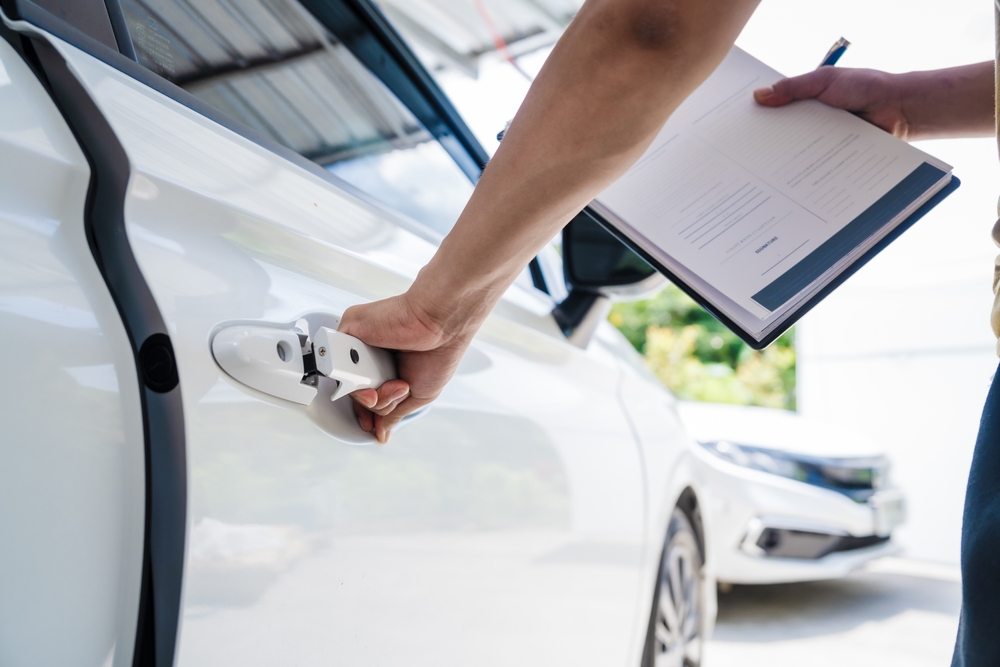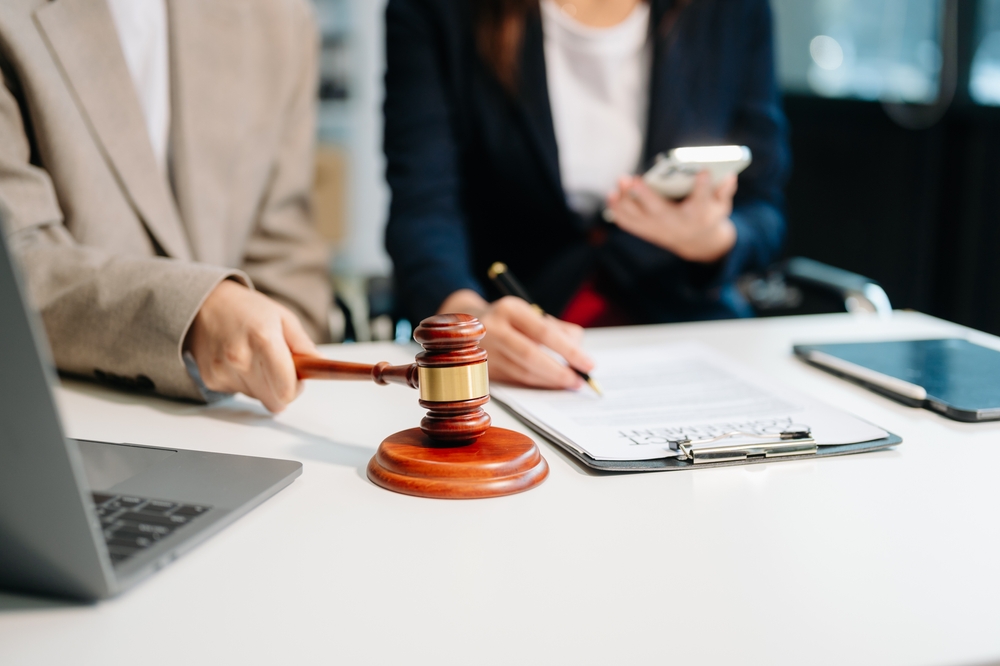Car accidents are a stressful experience, often leaving victims with injuries, vehicle damage, and the overwhelming task of navigating the settlement process.
Understanding how car accident settlements work can help alleviate some of this stress and ensure you receive the compensation you deserve. This guide will walk you through the settlement process, highlight common pitfalls to avoid, and explain why you need an experienced San Antonio car accident lawyer.
Understanding Car Accident Settlements
A car accident settlement is an agreement between the accident victim (the plaintiff) and the at-fault driver’s insurance company (the defendant) to resolve a claim for compensation.
This settlement typically covers expenses such as:
Economic Damages
These are quantifiable financial losses resulting from the accident, including:
- Medical expenses (current and future)
- Lost wages and loss of earning capacity
- Property damage
- Rehabilitation costs
- Out-of-pocket expenses related to the accident
Non-Economic Damages
These are more subjective and can be harder to quantify:
- Pain and suffering
- Emotional distress
- Loss of enjoyment of life
- Permanent disability or disfigurement
The goal is to reach a fair agreement without the need for a lengthy and costly court trial.
You can negotiate settlements at any stage, from right after the accident to just before a trial begins. However, understanding the steps in settling can help you navigate this often complex process more confidently.
Factors Affecting Settlement Amounts
Several factors can influence the amount of your car accident settlement:

- Severity of Injuries: More severe injuries typically result in higher settlements.
- Medical Treatment: The extent and cost of your medical treatment play a significant role.
- Liability: How clear is the other party’s fault? Clear liability often leads to higher settlements.
- Insurance Policy Limits: The at-fault party’s insurance coverage can cap the maximum settlement amount.
- Lost Wages or Income: If you’ve missed work or your earning capacity has been affected, this can increase your settlement.
- Property Damage: The cost to repair or replace your vehicle is factored into the settlement.
- Pain and Suffering: While harder to quantify, this can significantly impact your settlement amount.
Steps in the Settlement Process
The settlement process typically follows several key steps:
Reporting the Accident
Immediately after an accident, you must report it to the police and your insurance company. This report will serve as an official record of the accident, including details like the parties involved, the location, and any injuries or damages sustained.
Filing a Claim
Next, you’ll file a claim with the at-fault driver’s insurance company. This claim outlines the damages you seek compensation for, including medical expenses, vehicle repairs, lost income, and other related costs. The insurance company will assign an adjuster to review your claim and determine their liability.
Investigation
The insurance adjuster will investigate the accident, reviewing police reports, medical records, witness statements, and other evidence. They may also inspect the damage to your vehicle and interview you about the accident.
Initial Settlement Offer
After the investigation, the insurance company will typically make an initial settlement offer. This offer may cover some or all of your claimed damages, but it’s important to approach this offer with caution.
Why You Shouldn’t Accept the First Offer
Never accept the first settlement offer from the insurance company without consulting a lawyer, even if you’re facing mounting medical bills and other expenses. However, the first offer is often far lower than what you deserve. Here’s why:
Lowball Offers
Insurance companies are businesses focused on minimizing their payouts. Their initial offer is often a lowball amount designed to save them money. This offer may not fully account for all your damages, particularly future medical expenses, long-term disability, or pain and suffering.
Lack of Full Evaluation
At the time of the first offer, the full extent of your injuries and damages might not be apparent. Some injuries, such as soft tissue damage or traumatic brain injuries, can take time to manifest fully. By accepting an early offer, you risk settling for less than you need to cover future expenses.
Waiving Your Rights
Accepting the first offer usually means waiving your right to pursue further compensation. Once you agree to a settlement, you can’t go back and ask for more money if your injuries are more severe than initially thought.
Negotiation Room
The first offer is often a starting point in negotiations. By rejecting it and providing a counteroffer supported by strong evidence, you can negotiate a more favorable settlement that truly reflects your damages.
The Importance of Being Careful With What You Say
Speak cautiously with insurance companies. Insurance companies train adjusters to protect their company’s interests and will use even seemingly innocent comments against you.
Here’s what to keep in mind:
Avoid Admitting Fault
Never admit fault for the accident, even if you believe you might be partially responsible. Texas follows a comparative negligence rule, meaning your compensation could decrease if you’re partially at fault. Admitting fault can severely reduce your settlement amount.
Be Cautious with Recorded Statements
Insurance adjusters may ask you to provide a recorded statement. While this might seem like a routine request, they will use anything you say to undermine your claim. Decline to give a recorded statement until you consult an attorney.
Stick to the Facts
When discussing the accident with an insurance adjuster, stick to the facts. Avoid speculating about what happened or making statements about your injuries that could minimize their severity.
Don’t Discuss the Settlement Amount
Avoid discussing settlement amounts or your willingness to accept an offer without consulting an attorney. The insurance company may use your statements to argue that you will accept less than you deserve.
The Role of Evidence in Maximizing Your Settlement
You need evidence to build a strong case and maximize your settlement. The more compelling your evidence, the stronger your negotiating position. Key evidence includes:
Medical Records
You need detailed medical records documenting your injuries, treatments, and prognosis. These records demonstrate the severity of your injuries and the need for future medical care.
Accident Reports
The police report and any other official accident reports are important evidence. These documents can provide an objective account of the accident, including details about fault and contributing factors.
Photographs and Videos
Photos and videos of the accident scene, vehicle damage, and your injuries can be powerful visual evidence. They can help corroborate your account of the accident and the extent of your damages.
Witness Statements
Statements from witnesses who saw the accident can support your claim. Witnesses can offer an unbiased perspective on what happened, which you need if the other party disputes liability.
Expert Testimony
In some cases, expert testimony may need to establish liability or quantify your damages. For example, an accident reconstruction expert can determine how the accident occurred, while a medical expert can testify about the long-term impact of your injuries.
Negotiating a Fair Settlement
Negotiating a fair settlement involves a careful balance of assertiveness and strategy. Here are some tips to help you navigate this process:
Know Your Worth
Before entering into negotiations, a lawyer can provide a clear understanding of the value of your claim. This includes not only your current medical expenses and property damage but also future medical costs, lost earning capacity, and non-economic damages like pain and suffering.
Present Strong Evidence
When making a counteroffer, back it up with strong evidence. This could include medical bills, repair estimates, and documentation of lost wages. The more compelling your evidence, the more likely the insurance company is to increase their offer.
Stay Patient
Negotiations can take time, and it’s important to stay patient. Don’t rush to accept an offer just to get the process over with. Remember, the goal is to secure a settlement that fully compensates you for your damages.
Be Willing to Walk Away
Sometimes, it’s necessary to walk away from negotiations if the insurance company isn’t offering a fair settlement. In these cases, your next step might be to file a lawsuit and prepare for trial.
When Filing a Lawsuit May Be Necessary

While many car accident claims resolve through settlements, you may need to file a lawsuit if your case involves:
- Low Settlement Offers: If the insurance company refuses to offer a fair settlement, filing a lawsuit can pressure them to reconsider. The threat of a trial often motivates insurance companies to settle.
- Disputed Liability: If the insurance company disputes who was at fault for the accident, a lawsuit may be necessary to resolve the issue. In these cases, a jury may be needed to determine fault and award damages.
- Serious Injuries: If you’ve sustained serious injuries that require long-term care or result in permanent disability, your case may involve significant damages. In these cases, litigation might be necessary to ensure you receive the full compensation you deserve.
- Statute of Limitations: Texas law sets a two-year statute of limitations for filing a personal injury lawsuit after a car accident. If you’re approaching this deadline and haven’t reached a settlement, filing a lawsuit may be necessary to preserve your right to compensation.
The Benefits of Having a Lawyer on Your Side
Navigating the car accident settlement process can be challenging, especially when dealing with insurance companies that prioritize their bottom line over your well-being. This is where having an experienced personal injury lawyer on your side can make a significant difference.
Legal Knowledge
A lawyer understands the complexities of personal injury law and can help you navigate the legal system. They can assess the value of your claim, gather evidence, and negotiate with the insurance company on your behalf.
Protecting Your Rights
Insurance companies often minimize your compensation by pressuring you to accept a lowball offer or twisting your words during a recorded statement. A lawyer can protect your rights and prevent insurers from exploiting you during the settlement process.
Maximizing Compensation
An experienced lawyer knows how to maximize your compensation by presenting a strong case supported by evidence. They can also advise you on when to settle and take your case to court.
Handling the Details
A car accident is stressful enough without having to worry about the legal process. A lawyer can handle all the details of your case.
Contact a Trusted Personal Injury Lawyer Today
Understanding how complex and challenging car accident settlements work, exercising caution in interactions with insurance companies, and hiring legal representation can significantly improve the outcome of your claim. By being informed and prepared, you can increase your chances of receiving fair compensation for your injuries and losses.
Remember, each car accident case is unique, and the settlement process can vary depending on the specific circumstances of your situation. If you’re dealing with a car accident claim, seek professional legal advice to protect your rights and recover the compensation you deserve.
Don’t navigate the complex settlement process alone after a car accident in San Antonio, Texas. The experienced personal injury attorney at Ran Orsatti Law can help. Our skilled personal injury attorneys understand the intricacies of car accident settlements and are committed to fighting for your rights.
Contact us today for your free consultation, and let us help you maximize your compensation so you can focus on your recovery.

